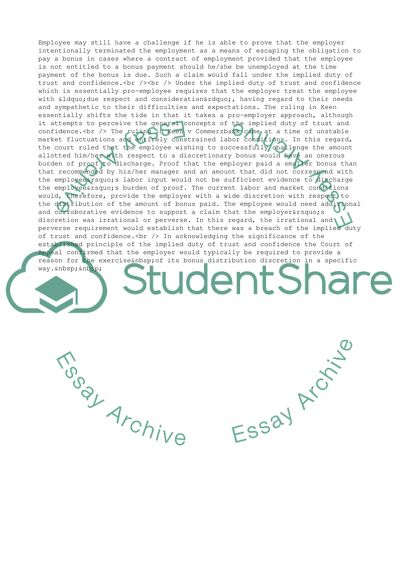Cite this document
(Keen v Commerzbank and Employees Challenge Case Study, n.d.)
Keen v Commerzbank and Employees Challenge Case Study. Retrieved from https://studentshare.org/management/1736928-case-note-keen-v-commerzbank-ag-2006-ewca-civ-1536
Keen v Commerzbank and Employees Challenge Case Study. Retrieved from https://studentshare.org/management/1736928-case-note-keen-v-commerzbank-ag-2006-ewca-civ-1536
(Keen V Commerzbank and Employees Challenge Case Study)
Keen V Commerzbank and Employees Challenge Case Study. https://studentshare.org/management/1736928-case-note-keen-v-commerzbank-ag-2006-ewca-civ-1536.
Keen V Commerzbank and Employees Challenge Case Study. https://studentshare.org/management/1736928-case-note-keen-v-commerzbank-ag-2006-ewca-civ-1536.
“Keen V Commerzbank and Employees Challenge Case Study”. https://studentshare.org/management/1736928-case-note-keen-v-commerzbank-ag-2006-ewca-civ-1536.


